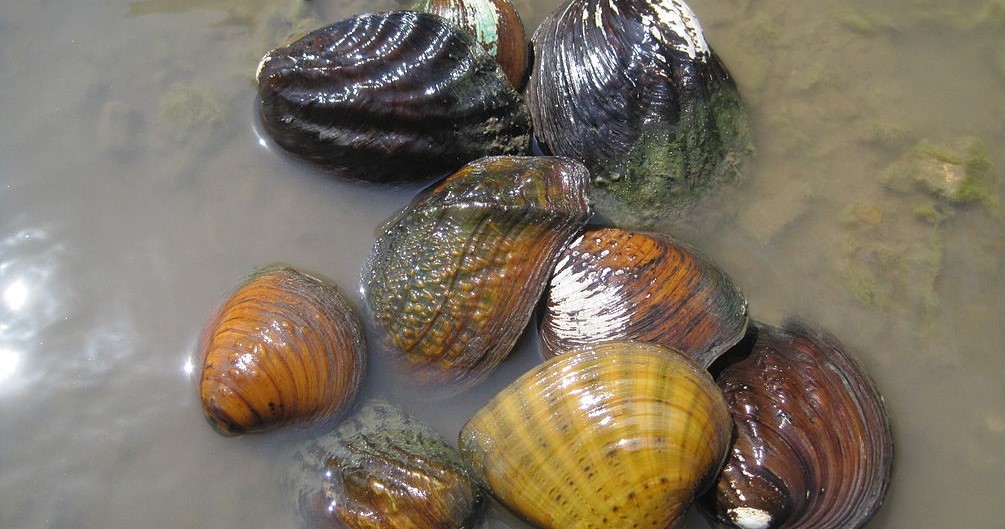
Sarah Richer, Senior Ecologist, Species at Risk Program, Royal Botanical Garden
–
Who among us poops out cleaner water than they take in? If they had hands, freshwater mussels would raise them proudly! Even though Canada has 55 native freshwater mussel species (41 of which are in Ontario’s lakes and rivers), the majority of naturalists can’t identify any. Our freshwater mussels may not move very much in their lives, but they are a crucial part of aquatic ecosystems – not only as food for other animals, but each can also filter several dozen litres of water a day! Unfortunately, over 65% of Ontario’s freshwater mussel species are in decline, and 39% of them are species at risk due to habitat loss, pollution, competition from invasive species, and loss of their host-fish species. Sarah will chat about what species you might find, which features are useful for identifying them, the creative way they reproduce, how surprisingly gorgeous these unassuming but vulnerable ecosystem indicators actually are, plus how and where to report your sightings.
Sarah Richer joined the Royal Botanical Gardens team in January 2016 as the Species at Risk Biologist in the Natural Lands department. Prior to landing at RBG, the variable nature of the environmental industry allowed her the privilege of working in conservation, stewardship, research, and natural heritage education for many organizations, including but not limited to Parks Canada, Ontario Parks, Canadian Wildlife Service, Ducks Unlimited Canada, Wye Marsh, and the Ontario Ministry of Natural Resources and Forestry. She has also clocked many volunteer months with wildlife rehabilitators, captive breeding projects, bird banding stations, and wildlife research. She primarily focuses on both common and species at risk birds, reptiles, amphibians, and plants, with some insects thrown in for good measure.
Photo: Tim Menard, USFWS
